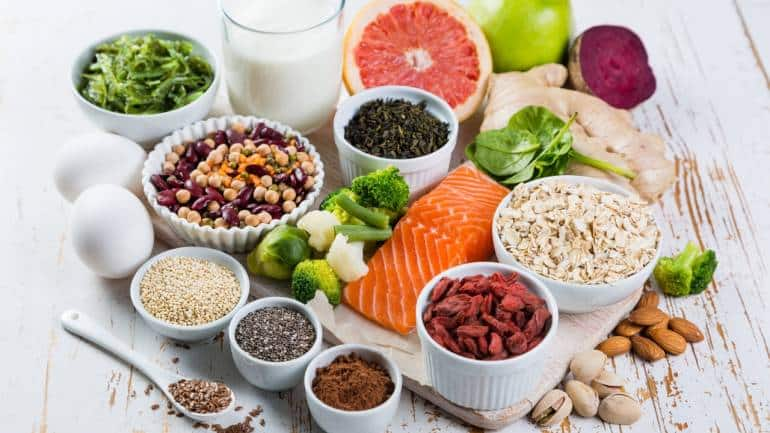
Many turn to multivitamin supplements as a convenient solution to meet their daily nutritional needs. However, nature offers an array of superfoods that provide essential vitamins and minerals in a more natural and bioavailable form. Let's explore some of these superfoods that can be incorporated into your diet as alternatives to multivitamin supplements (Image: Canva)
Spinach: This leafy green powerhouse is packed with vitamins A, C, and K, as well as folate, iron, and calcium. Adding spinach to your meals, whether in salads, smoothies, or sautés, provides a nutrient boost that supports overall health, including immune function and bone strength (Image: Canva)
Berries: Blueberries, strawberries, raspberries, and blackberries are bursting with antioxidants, vitamins, and fibre. These colourful fruits offer a wealth of nutrients, including vitamin C, vitamin K, and manganese, while also promoting heart health and aiding in digestion (Image: Canva)
Salmon: Rich in omega-3 fatty acids, salmon is a nutritional powerhouse that supports brain health, heart health, and joint function. Additionally, salmon provides an excellent source of vitamin D, which is essential for calcium absorption and bone health (Image: Canva)
Quinoa: As a complete protein, quinoa contains all nine essential amino acids, making it an excellent choice for vegetarians and vegans. It is also high in fibre, magnesium, iron, and B vitamins, supporting energy production, muscle function, and digestive health (Image: Canva)
Greek yoghurt: With its high protein content and probiotics, Greek yogurt is a versatile superfood that promotes gut health and supports immune function. It is also rich in calcium, potassium, and vitamin B12, essential nutrients for bone health and energy metabolism (Image: Canva)
Sweet potatoes: These vibrant root vegetables are packed with beta-carotene, a precursor to vitamin A, which is essential for vision health, immune function, and skin health. Sweet potatoes also provide a good source of vitamin C, potassium, and fibre, making them a nutritious addition to any diet (Image: Canva)
Almonds: A handful of almonds offers a wealth of nutrients, including vitamin E, magnesium, and healthy fats. Vitamin E acts as a powerful antioxidant, protecting cells from damage, while magnesium supports muscle function and nerve health (Image: Canva)
Kale: Similar to spinach, kale is a nutrient-dense leafy green that provides vitamins A, C, and K, as well as calcium, magnesium, and iron. Incorporating kale into your diet can help support bone health, reduce inflammation, and promote detoxification (Image: Canva)
Chia seeds: These tiny seeds are packed with omega-3 fatty acids, fibre, and protein, making them a nutritional powerhouse. Chia seeds also provide calcium, magnesium, and antioxidants, supporting heart health, digestive health, and blood sugar control (Image: Canva)
Turmeric: Known for its anti-inflammatory properties, turmeric contains the active compound curcumin, which offers numerous health benefits. Incorporating turmeric into your diet, whether in curries, smoothies, or teas, can help reduce inflammation, support joint health, and boost immunity (Image: Canva)
Discover the latest Business News, Sensex, and Nifty updates. Obtain Personal Finance insights, tax queries, and expert opinions on Moneycontrol or download the Moneycontrol App to stay updated!









